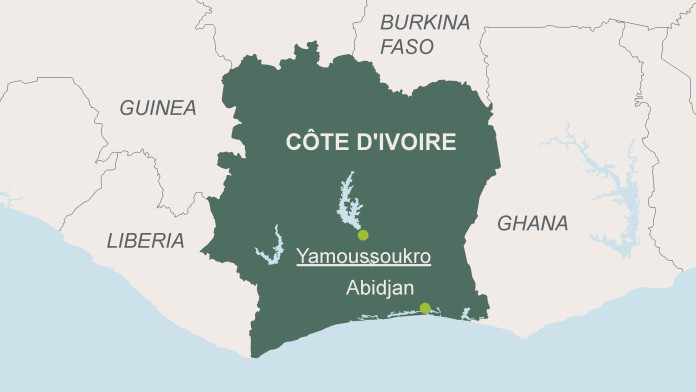
According to the World Bank, Côte d’Ivoire is one of Africa’s ten strongest economies. The country recorded economic growth of 6% in 2021, thus almost achieving pre-pandemic levels again. The nation is rich in mineral and natural resources. Around 45% of the population works in agriculture. It is one of Africa’s most important exporters of cocoa, coffee, palm oil, cashew nuts and rubber. The economy is more diversified than in neighbouring countries, making it more resistant to crises. The government aims to expand the nation’s middle class.
But at present, almost half of the population still lives below the poverty line. In addition to agriculture, the informal sector in particular offers employment, but with all the known disadvantages: there is no access to loans or training for those working in this sector.
The country’s rich natural resources are not yet fully protected. Cultivated areas for export crops are displacing species-rich, tropical forests. The deforestation rate of the last 50 years was among the highest in the world. Even forests in protected areas are at risk.
The government has set itself ambitious climate targets and is aiming to expand renewable energies. Germany has entered into a reform partnership with Côte d’Ivoire to accompany the country on its journey.
On behalf of the German Federal Government, KfW is supporting Côte d’Ivoire in achieving its development policy goals. There is close cooperation on the following topics:
• protecting the basis of our existence; environment and natural resources
• climate and energy, Just Transition
• sustainable economic development, training and employment
• health, pandemics, One Health
Côte d’Ivoire has many nature reserves situated in rainforests and on the savannah with a level of biodiversity that is unique in the world. The challenge is to reconcile the preservation of biodiversity with the further development of agriculture, which ensures the livelihoods of a large part of the population.
On behalf of the German Federal Ministry for Economic Cooperation and Development (BMZ), KfW, together with the Deutsche Gesellschaft für Internationale Zusammenarbeit (GIZ), has been supporting its Ivorian partners for many years in the conservation of the Taï National Park in the southwest and the Comoé National Park in the northeast, both of which are UNESCO World Heritage sites. It also contributes funds to the Ivorian conservation foundation.
KfW also supports the implementation of the reform partnership in expanding renewable energies, improving energy efficiency and developing the financial and banking sector. KfW is promoting the expansion of formal employment opportunities in Côte d’Ivoire with a regional facility. Targeted measures will be used to create jobs and trainee positions.
In addition to the topics covered by the reform partnership, KfW has been involved in the areas of family planning and HIV prevention for many years with projects that help to reduce the number of unwanted pregnancies, ensure medically assisted pregnancies and births, and improve mother-child health.
KfW’s projects contribute to the country achieving its desired goals for sustainable development.
KfW Office Abidjan
Director KfW Office: Dr. Jürgen Fechter
Cocody Vallon, Deux Plateaux, Rue des Jardins
01 BP 480 Abidjan 01, Côte d’Ivoire
+225 2251 0830
Fax: +225 2246 5401